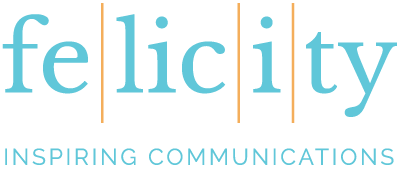Shane Schick is as an award-winning journalist, innovator and relationship-builder, with more than 15 years of experience in the technology sector. I first connected with Shane in 2011 while working on a PR campaign for Microsoft Canada. Today, Shane is the editor-in-chief of Marketing Magazine and is helping the magazine focus on key issues in the Canadian marketing industry, while telling the story of how technology is changing the world. Last week, Marketing Magazine hosted AdTech Canada 2016, a conference focusing on how brands navigate the changing and competitive landscape of advertising while continuing to engage their consumers in a world with increasing propensity towards ad blocking.
The focus of the event was to discuss the problems that have led to ad blocking and how brands going forward will have to work harder in order to “earn permission” to contribute to the way content is experienced by consumers. As stated on the AdTech website, “If there is innovation and ingenuity to make marketing more ubiquitous, expect there to be equally innovative ways developed to hide form that ubiquity.” This conversation is as relevant for PR and content marketing as it is for marketers, because we are also tasked with elevating brand awareness and building consumer trust, through proactive or reactive engagement.
For this installment of “Interview with an Influencer” we sat down with Shane to discuss his work at Marketing Magazine, the AdTech conference, and his take on the cultural shifts taking place in the world of advertising and marketing.
What are you working on right now that you are excited about sharing with us?
We have four themes or “pillars” that will anchor all the stories we tell across Marketing, whether it’s our print magazine, our newsletters, social media or events: technology, creativity, leadership and media. Those really spoke to me because I spent much of my career covering the enterprise IT market, then moved into content marketing for a few years. So I came to Marketing with a simple mission: to help marketers tell better stories using all the new tools available to them.
We kicked things off with our recent AdTech Canada 2016 conference, which helped show Canadian marketers how to make sure the technology they use to communicate with an audience will create trust rather than prompting them to download an ad blocker. We’ll be building on what our speakers said in a whole raft of stories across our newly-rebranded Tech Filter newsletter, while delving more into the leadership issues in our C-Suite newsletter for executives. Next on my agenda is developing a brand-new conference that we’ll host this fall which will focus on the art of storytelling in all its various forms. It’s going to go way beyond content marketing basics and show brands how they can adopt a more editorial mindset.
What was one of your favourite highlights from Ad Tech?
We were the first Canadian event to bring together both sides of the ad-blocking debate. We used videoconferencing tools to call one of the creators of a popular ad-blocking app, and had someone else fly in from Ireland who makes a tool to ward off ad-blocking, along with a local Canadian adtech executive. You could have heard a pin drop during that session. It may not have changed anyone’s mind about the issue, but it certainly brought a sense of urgency to our audience about making ads that are more thoughtful in terms both design and how and where they’re served.
What cultural shifts are taking place today that we need to pay attention to as communications and marketing professionals?
I think the biggest issue is that technology promises a lot about how it can make marketing more targeted, relevant and personalized to individual audiences, but the reality is that often things don’t work exactly as promised. We’ve all occasionally been marketed to in ways that seem jarring or ill-considered. The cultural shift is that everyday people are becoming much more aware of how they’re being monitored, tracked and so on, and they’re not afraid of using their own technological tools to opt out somehow. Acting in ways that are strategic and measurable but that also build trust has never been more important.
What’s the one piece of advice you wish you’d had earlier in your career? Why?
I wish I’d realized how important it was to understand the business side of media and cultivate an ability to assist a sales team. If you can’t contribute to the financial health of the business, you’re never going to have the resources you need to serve your audience as a journalist.
If you could be truly excellent at only one thing, what would it be?
Writing. From there stems everything else.

